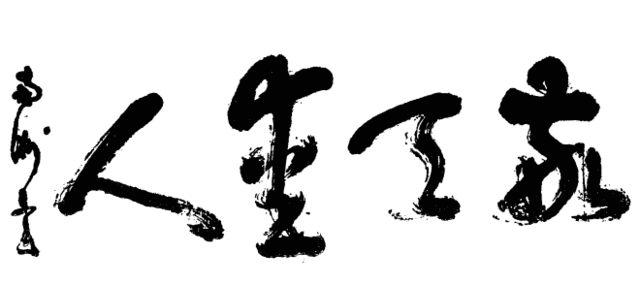Loading AI tools
Japanese lexeme consisting of four kanji From Wikipedia, the free encyclopedia
A yojijukugo (Japanese: 四字熟語) is a Japanese lexeme consisting of four kanji (Chinese characters). English translations of yojijukugo include "four-character compound",[1] "four-character idiom", "four-character idiomatic phrase", and "four-character idiomatic compound". It is equivalent to the Chinese chengyu.[2]

Yojijukugo in the broad sense refers to Japanese compound words consisting of four kanji characters, which may contain an idiomatic meaning or simply be a compound noun.[3] However, in the narrow or strict sense, the term refers only to four-kanji compounds that have a particular (idiomatic) meaning, which cannot be inferred from the meanings of the components that make them up.

There are a very large number—perhaps tens of thousands—of four-character compounds. A great majority of them are those whose meanings can be easily deduced from the literal definitions of their parts. These compounds may be called non-idiomatic yojijukugo.
For example, the compound word okunaikin'en (屋内禁煙, "no smoking indoors") is a non-idiomatic yojijukugo. It is made up of four characters: oku (屋, building), nai (内, inside), kin (禁, prohibited), and en (煙, smoking). Alternatively, it can be regarded as consisting of two common two-character compounds: okunai (屋内, indoors), and kin'en (禁煙, prohibition of smoking). Either way, the meaning of the compound is clear; there are no idiomatic meanings beyond the literal meanings of its components. Below are a few more examples of non-idiomatic yojijukugo:
Yojijukugo 四字熟語 is itself a non-idiomatic four-character phrase.
By contrast, several thousands of these four-character compounds are true idioms in the sense that they have a particular meaning that may not be deduced from the literal meanings of the component words. An example of the highly idiomatic compound is:
"Ocean-thousand, mountain-thousand" means "a sly old fox" or someone who has had all sorts of experience in life so that they can handle, or wiggle out of, any difficult situations through cunning alone. This meaning derives from an old saying that a snake lives in the ocean for a thousand years and in the mountains for another thousand years before it turns into a dragon. Hence a sly, worldly-wise person is referred to as one who has spent "a thousand years in the ocean and another thousand in the mountains".
Many idiomatic yojijukugo were adopted from classical Chinese literature.[4] Other four-character idioms are derived from Buddhist literature and scriptures, old Japanese customs and proverbs, and historical and contemporary Japanese life and social experience. The entries in the published dictionaries of yojijukugo are typically limited to these idiomatic compounds of various origins.
The Japanese yojijukugo are closely related to the Chinese chengyu, in that a great many of the former are adopted from the latter and have the same or similar meaning as in Chinese.[2] Many other yojijukugo, however, are Japanese in origin. Some examples of these indigenous Japanese four-character idioms are:
Seamless Wikipedia browsing. On steroids.
Every time you click a link to Wikipedia, Wiktionary or Wikiquote in your browser's search results, it will show the modern Wikiwand interface.
Wikiwand extension is a five stars, simple, with minimum permission required to keep your browsing private, safe and transparent.